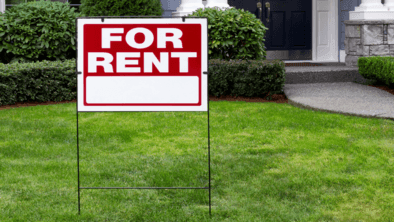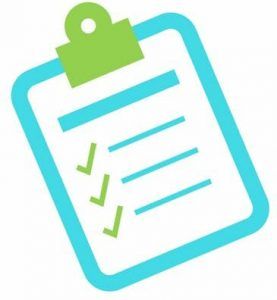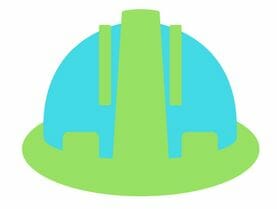
10 Tips For Buying a Rental Property
Editor’s Note: This is an article written by Sasha, a former Consumerism Commentary staff writer. In 2007, Sasha shared her experiences with purchasing and managing residential rental properties and the lessons learned. We published these articles in a series of ten. I’ve re-edited the pieces and consolidated the great advice into one article.
Looking to diversify your investments and take advantage of the current dip in real estate prices? While by no means a passive investment, real estate investing offers several advantages. Residential rental property can provide additional short- and long-term income and significant tax benefits as well.
But the trick’s in the buying. An error at this critical stage is one you’ll pay for again and again over the life of the property. It’s important to be a well-informed and cautious buyer, taking the time to do the necessary research.
Related: Best Cities to Invest in Real Estate: Buy Real Estate Rental Properties
My own experience with six rental properties has taught me a few things worth sharing.
1. Buy at the right price
 A bargain now will help you to better withstand fluctuations in property value over time. That way, you can profit if (and when) you eventually sell.
A bargain now will help you to better withstand fluctuations in property value over time. That way, you can profit if (and when) you eventually sell.
You need to develop a deep understanding of what constitutes a “value” price in the neighborhood(s) in which you’re looking. As an investor, you can keep making low-ball offers and wait for the deal you want. Investors, however, generaly snap up great bargains. So, you need to be able to act quickly once your target’s in sight.
You also need to benchmark rental prices for comparable units in the area, getting a feel for demand.
The local classifieds are a great starting point for this. A few hours of research should give you a good basis for determining what you can charge. Just make sure to factor in for utilities (electric, gas, oil, water, sewer, cable, etc.), if they’ll be included in the rent.
Depending on your personal goals, there may not be enough of a spread between what you will pay out monthly — in mortgage, taxes, and utilities — and what you can charge tenants. Figure out what your spread needs to be, and analyze every house you consider against this amount.
I’m looking to make a yearly profit without much additional out-of-pocket investment beyond the down payment. Because of this, my rule of thumb is that there needs to be at least a $500 difference per month between income and costs.
Of course, a bigger spread is preferable, as it means more profit. That also provides a buffer for the months in which you go without a tenant, or when the hot water heater springs a leak.
If you’ve got a few good options to consider, the differences in the spread can aid in your decision-making.
2. Find the right neighborhood
 Rental properties don’t always make good neighbors, but there are a few tricks to making it work.
Rental properties don’t always make good neighbors, but there are a few tricks to making it work.
Overall, it’s important to find a community where your rental property will have a good chance of being accepted. The ritziest corner of town may not be it.
On the other hand, it’s hard to find and keep good tenants in bad areas, where crime rates may be higher.
I’ve had the best luck with solid, working-class neighborhoods. These are generally middle- to lower-income areas, where tradesmen and even some businesses might reside, intermingled with the houses. One can often tell these neighborhoods by the work vans and trucks parked in the driveways.
Not only do the residents understand the value of hard work, they appreciate the effort I invest in rehabilitating and improving my properties. Your presence in the neighborhood should help to make it a better place.
Regardless of which neighborhood you choose, you never want your property to be the worst-looking one on the street. Not only will this impact your rentability, but complaints and possibly citations may follow.
If you choose a property which visibly needs maintenance, you should budget to correct these issues within the first year, and ideally prior to renting it at all. This helps to show the township or city officials that you’re one of the good landlords, committed to keeping your property up. It can make a huge difference in your experiences over the life of the property.
Each property you own serves as a reference to your work, abilities, and commitment.
3. Be aware of local rental regulations
 In many locales, rental properties are treated more like businesses than residences. This can lead to many (expensive) surprises, if you don’t do your research beforehand.
In many locales, rental properties are treated more like businesses than residences. This can lead to many (expensive) surprises, if you don’t do your research beforehand.
For example: while 8×10 might constitute a proper bedroom in your personal home, it likely won’t be considered such for a rental property. In one local township where we presently own three properties, there are minimum ceiling heights (7′) and square footage (100 sq. ft.) for bedrooms. This is substantially different from what is required for residential homes.
Occupancy is also calculated by that same township based on the square footage of the unit. So, what the local realtor touts as a four bedroom home may only legitimately be a two bedroom home, if rented.
Township-enforced renovations can be a massive expense. In fact, I personally know someone who paid nearly $50,000 to get two basement bedrooms and a bathroom upgraded to meet code. He’d bought the house with a “finished basement,” which the previous owners had completed without a permit.
Because rental properties are treated as businesses, he was not allowed to do the work himself. Instead, he had to hire an architect to draw and seal the plans, then licensed plumbers, electricians, and building contractors to do the work. He also had to pay to relocate the existing tenants until the work was completed.
It is a safe assumption that you’ll need to bring your property into accordance with local rental regulations prior to your earning any income from the property. Knowing the issues, you can budget accordingly before you ever put it up for rent (or even put in that offer to buy!).
4. Ensure proper parking is available
 In one local township, for example, parking requirements for rental and residential real estate differ substantially.
In one local township, for example, parking requirements for rental and residential real estate differ substantially.
There, almost anything goes for residential homes. For rentals, though, one paved off-street parking space is required for all tenants old enough to hold a driver’s license, whether or not they actually have a license or own a car.
A house rented to a family of two fifty-something adults, an 18 year-old son, and a 20 year-old daughter would require 4 parking spaces.
Some jurisdictions may institute a flat, per-property parking space requirement. Others, a sliding scale based on square footage.
More and more municipalities are passing such regulations, which are often conditions for licensure. Landlords are being forced to either retrofit their properties to meet the new requirements or throw in the towel and sell. The latter is especially true, as many properties lack the free space to even provide sufficient paved parking.
Besides meeting existing regulations, off-street parking is desirable for landlords seeking quality tenants in areas where cars are de rigeur. People who care about their cars don’t typically like to park them on the street. Therefore, offering a protected parking spot can help you to attract better tenants.
5. Look for simple construction
 That Victorian home you’ve been ogling may feature lovely leaded glass windows, but you’ll never find a suitable replacement at the local home improvement store.
That Victorian home you’ve been ogling may feature lovely leaded glass windows, but you’ll never find a suitable replacement at the local home improvement store.
A slate roof is a beautiful thing to behold, but can be terribly expensive to repair. And if the roof’s very steep, costs could go up even further.
At the end of the day, look for a house that has simple, solid construction and uses relatively standard materials, where everything’s easy to access. These are generally the easiest and most inexpensive to maintain.
As some building contractors will tell you, the shape of your structure provides a general measure of its complexity. Count the corners of your building. Four-corner buildings are often simplest to maintain and add onto. From there, more corners typically means more costs.
When examining a potential investment property, you should also consider ease of access to the heating, cooling, plumbing, and electrical systems. A panel or wall behind the shower allows quick access to plumbing in case of a problem. If that shower instead backs up to another bathroom, you might be looking at removing a whole tiled wall in order to complete a repair.
Complicated landscaping may be expensive to maintain, as well. I look for properties with a simple, small lawn, nice manageable planting bed, and ideally a large rock garden or patio. These mean less maintenance for your tenants and for you.
6. Beware of houses built on a cement slab
 Not having a basement can cost you much more than storage space.
Not having a basement can cost you much more than storage space.
In some places, like parts of Florida and Texas, all houses are slab construction. Real estate investors have no other options. For those areas, it’s important to understand the issues involved with this type of construction, as it can have major financial impact over time.
In such structures, you can bury duct work, heating pipes, plumbing, and electric lines can in or beneath the slab. If your plumbing pipes are set beneath the cement, you may end up jackhammering out the floor just to fix a simple leak.
Moisture and drainage issues are also exacerbated in structures which are built on a slab. I’ve seen a number of slab homes which are set low to the ground, making flooding more possible and more damaging in areas without proper grading and drainage.
Depending on the area in which the home is built and how well the ground is allowed to settle before construction begins, you could also have issues with shifting. If the ground moves too much, the slab can crack. This is a costly repair that you’d rather not deal with… believe me.
Lastly, any time you have a slab home, you’re looking at less living space because you may lose a room (or space in the garage) to utilities such as the furnace, water heater, and washer/dryer. It’s a safety violation to house many of these items within the bedrooms, so they’ll need a room or walled space all their own.
Not to mention that if one of these appliances springs a leak, they’ll do a lot more damage if placed in the interior of the home, rather than the basement.
7. Look out for safety issues
 An excellent value for the money, a licensed home inspector can help to identify potential safety and maintenance issues before they crop up. They can even provide ballpark estimates for correcting them.
An excellent value for the money, a licensed home inspector can help to identify potential safety and maintenance issues before they crop up. They can even provide ballpark estimates for correcting them.
I would personally never purchase an investment property without consulting an inspector. Far too many potential dangers lurk within and behind the walls, which can turn your House Beautiful into The Money Pit.
Radon, lead paint, asbestos, and mold are four primary concerns, as they pose significant health risks and can be expensive problems, requiring specialists to remediate.
My insurance company will not even insure a property which it believes to have lead paint, for example. I’ve also been hearing reports lately about local code officials doing tests which penetrate the top layers of paint to reveal any presence of lead below.
As a landlord, there are certain things you need to pay special attention to in order to prevent potential lawsuits. These include:
- Exterior stairways without handrails or where ice/snow/rain may cause a slip hazard
- Steep steps
- CO and smoke detectors (fire hazard)
- Obstructed doorways or exits (fire hazard)
- Broken windows/glass
- Cracks or unevenness in sidewalks, driveways, or walkways (trip hazard)
- Open electrical circuits, outlets or wires (electrocution hazard)
- Unfenced swimming pools (drowning hazard)
- Lack of GFI outlets near kitchen/bathroom water facilities (electrocution hazard)
As a rental property owner, you have an increased risk of lawsuits overall. Safety is always a primary concern, though accidents still happen.
Owners often choose to limit their personal liability risk by establishing each property as its own LLC. Consult a lawyer to ensure that your other assets will be protected in the event of a lawsuit.
8. Stay close to home
 Absentee landlords tend to find out about and resolve problems less quickly. In turn, this can allow them to turn into big, expensive problems.
Absentee landlords tend to find out about and resolve problems less quickly. In turn, this can allow them to turn into big, expensive problems.
Municipalities are none too fond of absentee landlords, either. This can also lead to bigger, more expensive problems, like fines and even citations.
Twenty minutes or less is an ideal distance. It allows you to appear involved and available to your tenants and local officials. You can also be a visible part of the community, and respond rapidly when help is needed.
One unfortunate landlord I know attempted to hold down a busy job in Manhattan and establish a startup company, while managing several properties over an hour away in New Jersey. He invested a chunk of money to fix up his properties, and everything seemed fine. That is, until a minor plumbing problem occurred in one of the houses.
It was an easy fix involving a five dollar part, but this landlord was late to respond. He didn’t have much luck with the local plumbers he reached out to, and more time passed. One day a plumber finally called back after visiting the house and angrily exclaimed that he refused to work under those conditions.
What conditions, you ask? Well, in a house of eight tenants, raw sewage had been pouring into the basement for over two months. The muck was knee-deep, the stench was abominable, and yet the tenants –college students — had never said a word.
The house was in foreclosure within the year.
9. Bigger is not always better
 As your property size and square footage help to determine your tax rate, an acre or more of land really isn’t necessary.
As your property size and square footage help to determine your tax rate, an acre or more of land really isn’t necessary.
Beyond increasing overall property value, it won’t do much as far as rental income goes, unless you have plans to build an addition or another rentable structure on the lot. Plus, you’ll mow it (or pay to mow it) and pay extra taxes for it.
Room size also won’t have a worthwhile impact on rental income.
As long as you meet the minimum bedroom requirements required by the township or city, more square footage per room doesn’t necessarily help. Four small- to medium-sized bedrooms may actually produce better income than three large bedrooms.
One of our rental properties featured a lovely (but immense) bar in its finished basement, which we immediately earmarked for removal. Giving our tenants the ultimate party basement sounded like a bad idea, and a good opportunity for added wear-and-tear/foot traffic. The extra initial cost has paid off in the long run, especially when we decided to rent to college students.
If our goal was to flip the house, we might have left it. For our intended use, though, it was more of a liability and took up extra space.
In the end, the optimal rental property (for tax purposes) is a solid structure on a relatively small lot with adequate distance from the neighboring properties to diminish noise. It features a number of small- to medium-sized bedrooms, and has enough space for the tenants to comfortably congregate without substantial excess.
10. Utilities can use you up
 Utilities can be a major issue for landlords if not set up properly. If you supply utilities to your tenants, you generally cannot terminate them for nonpayment or other issues. If you do, the penalties can be severe.
Utilities can be a major issue for landlords if not set up properly. If you supply utilities to your tenants, you generally cannot terminate them for nonpayment or other issues. If you do, the penalties can be severe.
Want to keep the bills in your name but have the tenants pay their portion to you? Just know that the law does not generally allow you to collect if they default on these sums, so you may risk losing out if the tenant stops paying their portion of the utility. Plus, you are still required to furnish them with these utilities, even if they fail to pay.
Unless you can incorporate a flat fee into the monthly rent figure, which covers your expenses even as costs continue to rise, it is best to insist that tenants pay utilities directly, under their own names. Then, in the event of default, you are not responsible.
This means that properties containing two or more rental units need to have split utilities. Separate furnaces, hot water heaters, meters, etc. will all be necessary.
It is much easier and cheaper to purchase an already-split property than to try to do this yourself, so this is an important factor when you are looking at multiple-unit properties. Just know that duplicate systems will mean more maintenance costs over time, however.
Related: Is Being a Landlord the Right Move for You?
Purchasing and managing rental property is a great way to grow assets and establish passive(ish) income. It can be a truly great investment.
While owning rental properties may not be for everyone, it can be a successful venture if you implement a few safeguards. These ten tips will hopefully help you find and vet the perfect property for you. Good luck!
We would love for you to share your rental property experiences with other Consumerism Commentary readers. Learning from each other is one of the most powerful ways to ensure your project succeeds!

Article comments
I agree with what you said at number 2. It is also important to consider the people that you would be living with. Not even money can buy good neighbors.
Thanks for sharing these useful tips updated information. These are all very good guidelines that should be used for buying a rental property. I totally agree with the one about buying at the right price. Overpaying will harm your rental property business from the beginning. However, buying a property that is too low in value without researching the surrounding market, going rates of nearby properties, and the location can harm you as well. Myself an online market researcher at Nahar Group. Like to read, appreciate and share online real estate investment & market information.
I think it would be wise to have a lawyer present to help you navigate through the paperwork of a sale. This way he or she can help you avoid any legal complications you might miss otherwise and end up costing you a lot of money in the future. I’ll have to consider getting a lawyer if I ever need to go house hunting.
https://www.remax.com/realestateagentoffice/sandiego-ca-92104-stephensadatmand-id31306273.html
I really appreciated your tip to buy a house at the right time because at the right time will be the right price. I am not currently looking for a new home. If I were looking for a new home, I would make sure to consult with a real estate agent to determine if it is the right time or right price for me. http://www.houstonnorthwesthomes.com/buyer
To Everyone out there, I’m just putting some feelers out there to see if there’s anyone interested in making a substantial amount of cash in a short amount of time. Only thing this requires is that you have an active bank account or credit card. No cash is required up front to start. Which means your account can be on a zero balance and that’s completely fine. Feel free to text +1(314) 856 1730, lets talk about the next deal
There are a ton of things to keep in mind when buying a rental property, but I really like that the article reminds readers to look out for safety issues. After all, whether you’re going to be the one using the vacation home, or whether you’re going to rent it out to others, you want to make sure that the people staying there are safe. In order to ensure this you have to look over any safety problems that the home might have.
Awesome info, thank you for sharing
It’s interesting to learn that when it comes to finding a rental property to buy there are some things to keep in mind. I like that you mentioned the property should be close to where the owner lives so they will be able to help the tenants as needed. This is something we will have to keep in mind when it comes to choosing the right place for us to get.
Thanks for the information to help us find a vacation home that can also be a rental while we aren’t living there. You are so right that we need to find the best neighborhood, so it will be a hot spot for renters. My hope is that we can find a place that is close to the city, but has great access to the outdoor activities around.
Soon, my husband and I are hoping to invest in a rental property. We want to make sure we choose the right home that will fit our budget and specific amenities that we want. Additionally, like you said, we will want to look for simple construction and consider the ease of access to the heating, cooling, plumbing, and electrical systems.
I really like your tip about finding the right neighborhood when it comes to finding the right rental property! My husband and I have been looking for real estate for the past few weeks so we will have to keep these tips in mind. We are really excited to start this process, thank you for sharing!
I like that you reminded us that it is always important to be aware of local rules, laws, etc; tt couldn’t be stressed enough. I know that a lot of local rental property management companies do really well at their specific location. Whenever I finally decide to start into this, I will make sure that they know what they are talking.
These are all great tips for buying a rental property. I especially appreciate the one about buying at the right price. Overpaying will harm your rental property business from the beginning. However, buying a property that is too low in value without researching the surrounding market, going rates of nearby properties, and the location can harm you as well. That said, buying in an up and coming area can be beneficial so long as you make sure every aspect of the purchase and subsequent lease terms make sense financially from the start. Thanks again for sharing these useful tips.
My wife and I are renting our property right now and we are having a couple of family members stay with us temporarily. One thing I didn’t really realize was the limitations on parking. So as you can imagine, parking gets tough with extra cars. I think the best way to remedy this is to get creative with the way you organize your garage so you can fit more cars in the garage and in the driveway.
My grandma owns several rental properties and so he knows that it is better do so when they are closer to home. Last year, he spent a lot of money and time fixing up one of his homes that was hours away from him. The previous resident had been a smoker and so that caused a lot of problems in the clean-up process. Now, he is planning on selling that property and just taking care of the properties that are closer to him.
I like the suggestion to stay close to home when you rent out homes. Being close to your tenants can be a great way to stay connected to your property. Personally, I prefer to live in the complex or in the neighborhood so that the tenants can always ask for help when it comes to the property. Thanks for the tips!
Am in New Jersey , want to buy property for rent by cash like 2 family house live in 1 unit and rent 2nd unit out , do you think buying it in cash is good idea?
And what are the expenses should I be expecting ?
Will I make money on doing this and do I need to notify township about renting my property out
Hi…..
Currie
Awesome tips really helpful.
I am satisfied with it because everything is under the plan already, However,one thing that make me halt is the Cement Slab that you mentioned. It question me again to look deep into this part.
Please, can you or anyone give me the best insight about how i can prevent or abstain any future problem with it if i carry on because i am preparing to build with cement slab.
Really worth the time. All 10 points are important tips for buying a rental property and specially 7th point about safety issue is the most important one.
I like your tip to stay close to home. I think it is good, when you own, or are thinking about owning a rental property, to know the market. It is good to know whether people are looking to buy or rent, and it is good to know what the market price is for rentals, and who your competitors are. I don’t think it is necessarily a bad thing to buy a rental property away from where you live, but it will be easier, particularly if you are just starting out, if you stay close to home.
Avoid Detroit like the plague if you are a cracker.
What is a cracker?
I dsf
Custom designs of water tanks also cost higher than the modern one because they are manufactured according to the needs and demands of the people.
You can pick a reputable provider that helps you accomplish
your business targets successfully. This facility helps the customers
in storing their possessions.
Good advice I am interested in buying rental property I live in Houston but I have no idea where to start is there any more information that can be given
Are you trying to buy it as a rental? If so, you answered your own question.
If you are buying it to live in that may be different, but if you ever had to move out you could not rent it and would be forced to sell, and if the market was bad you would be stuck holding it (you will have a hard time selling it in a good market too with that restriction).
I wouldn’t touch a property like that unless you were flipping it and had a contract with a buyer in hand BEFORE you tied it up.
Hi,
we are trying yo buy a property,one of the conditions is renting not allowed.Please let me know is it ok to buy that kind of peroperty.Please advise
Jo Ann and Cindy:
If you don’t know how to do a proper analysis and determine whether you are getting a good deal and that it will cashflow (make you money) every month, then you have no business buying rental property. From the nature of your comments it sounds as though you really don’t understand rental properties, and if that is truly the case you need to first spend your time and money educating yourself. Then when you know what you are doing you can go for it and not experience all the potential problems mentioned here and all the other possible problems not mentioned here.
Good luck!
How/Where does one go to get the education you mentioned ?
Thank You.
Phil
Great tips, I am in the process of purchasing a rental property and I these tips really came in handy!
When I initially said I visited the -Notify me when new comments are added – checkbox and now when a comment is added I get three emails with the exact same comment. Will there be any way you are able to remove me from that system? Thanks!
I would like to buy rental properties. But I am not sure how much it would cost to get started and would I be able to make a profit? Because I don’t want to get into the property and end up just breaking even or making no money at all. I do own my home; and would like to borrow money against it to buy a small duplex to rent out.
am also just starting our with the same issues about not wanting to just break even or god forbid losing money. have recently had a tragedy resulting in a child with a dissability, who is an adult, but needs financial help every month. just looking for any info on the subject
See Dave Ramsey’s website/podcasts. His main point – don’t borrow money period and definitely not to buy a rental. What if you don’t have a renter? Now your paying two bills.
Does anyone know if a “hold harmless” agreement signed by a tenant would work to limit liability exposures???
The fees charged by property management companies vary, as do the services they offer. At a minimum, though, they wil advertiser for and vet tenants (credit check, etc.0, collect the initial deposits, bill, collect rent, pursue non-payment, do the property accounting for you, etc. Depending on how busy you are with the rest of your life and how easily you would be able to advertise for new tenants, run credit checks on them, move them into the property, bill them, check them out of the property, and so on, it may well be worth your peace of mind to have the job done right. For a property or two close to home, it may not be a big deal. But for mulitple properties or people who already have careers, it’s definitely worth considering.
I am curious if anyone has any experience with rentals using a property management company. It seems as if property management companies are pretty expensive, but i’m not sure what the cost/benefit ratio would be.
I use a rental management company and it’s worth it to me. Mine is a vacation rental so I’m dealing with 20+ separate renters a year. They handle all of the service calls along with the basic bookings and money. It works for me- I am farther than 20 minutes away so I really need this assistance. They also do the advertising, and arrange for any service and placate renters who expect something for free. They are a nice buffer between me and the renters. They charge 11% but I find it worth it.
Very good post. I really appreciated the section about staying close to home. I think too often people try and buy homes that are a good distance from their everyday house. You will know the market in your area better than any other. In addition, you may want to look at buying the property inside a retirement account. In most cases it may require that you have a property manager, but the tax advantages can outweigh this expense in many cases.
You still want to ensure that you understand the market in the area, the rules and regulations in the area and make sure that you have done your homework, but finding a good rental and making the investment inside the IRA can be a huge boost to your retirement account. Look around and do some research, I located a company that will allow me to open an IRA and make the real estate investment all inside the IRA.
Chad,
I like the post. Very interesting that you have been looking for a way to do real estate investing inside the IRA. I too have been looking and researching this as an investment inside a retirement account. I still have much to learn. What company did you find?
Some great tips! Buying where you know and what you know is a good idea, particulary if you decide to do all the work yourself. There are some benefits in buying in areas that you aren’t familiar with if you are chasing capital gains instead of rental return / cashflow. There are some great groups and resources around that do a lot of this research for you and take a lot of the risk out of investing in property. Sure they get something out of it, but it is like using a mortgage roker and you wouldn’t get a better deal without using them anyway. Use all the resources available to you I say!
Cheers,
I’m kind of an accidental landlord — one house, rented to a relative.
My advice on utilities is to have most of them in the renter’s name. I figure if the renter has to pay for gas and electricity, they can use as much or as little as they want. If I, the landlord, pay for it, there’s always the “discussion” about how much gas/electricity is being used. This way, if my renter wants to leave lights on all the time or heat the place like a tropical paradise, it’s up to their budget, not mine.
These are great tips to have, especially the right neighborhood. I think a lot of people go for bad neighborhoods because the pricing is cheaper, but they end up paying for it in the long run